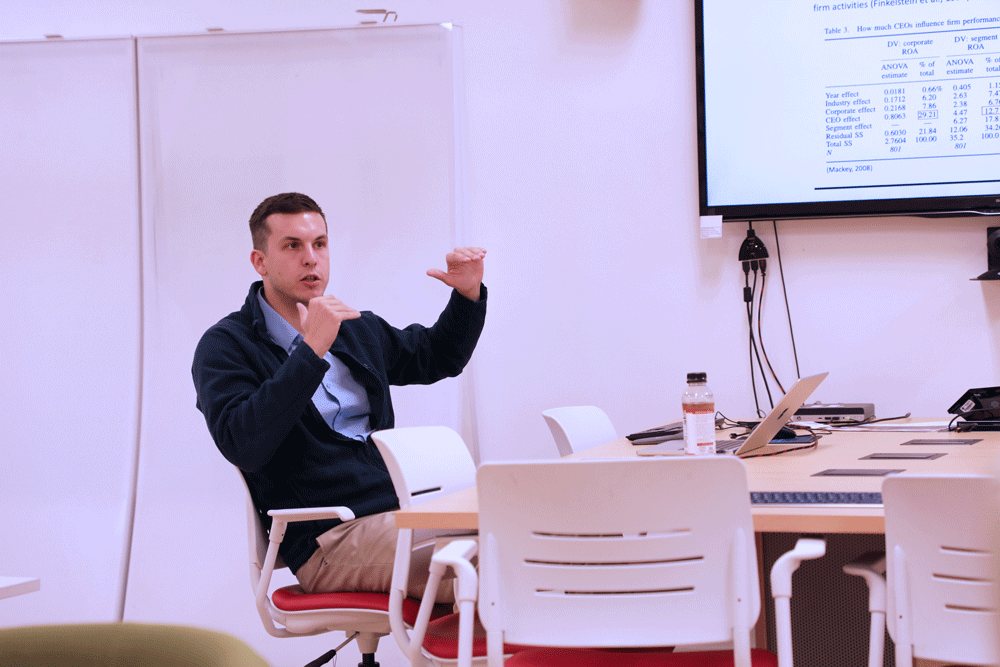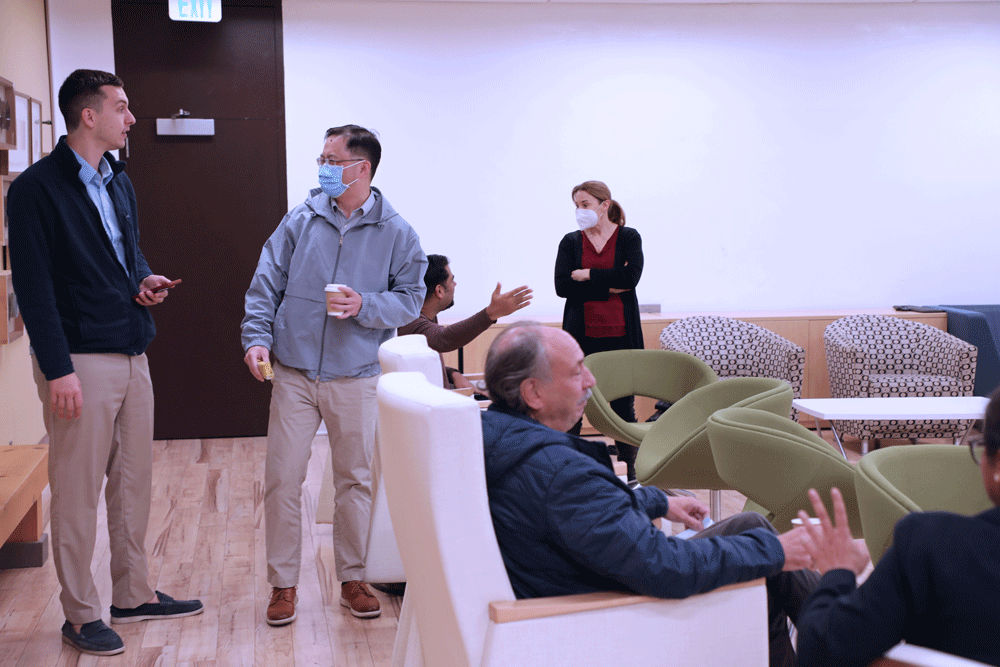Yves-Martin Felker, assistant professor of strategic management in Cal State LA’s College of Business and Economics, recently presented surprising insights on how machine learning can detect human personality and provide explanations for how we behave.
Inspired by poor leadership he observed in several workplaces, Felker sought to understand the correlation between CEO psychology and decision-making. First, he used videos of CEOs delivering presentations to make his own assessments.
“I used videos to determine if I would like to work for that manager or not,” Felker said to students, faculty, and staff gathered for his research presentation on December 7th, 2022. “After a while I asked myself: If I can analyze a person, can machines do it in a more sophisticated way?”
Felker’s presentation was part of CBE’s Brown Bag series, which aims to provide an informal space for students and professors to share their research with the college community.
Yves-Martin Felker presents at CBE’s Brown Bag series, a place for students and professors to share research.
Machine learning can make determinations about a person’s personality with an up to 90% accuracy rate, according to Felker(Gucluturk et al., 2017). Factors like vocal pitch, language, and micro-movements produce comprehensive personality profiles. Probability-based learning methods produced results far more detailed and accurate than any humans could have provided, Felker said.
Felker believed this understanding could better equip workers around the world in their search for positive leadership in the workplace.
To conduct the study, Felker decided to take a closer look at CEOs in 1,500 of the United States’ largest and most successful companies, listed in Standards and Poor’s Composite 1500 Index, the S&P 1500.
To gather data, Felker and his colleagues sourced publicly available videos of CEOs giving presentations. His goal was to utilize videos where CEOs spoke candidly so that their voices, gestures, and facial expressions accurately conveyed their personality traits.
The findings revealed that CEOs were less likely to pursue the most lucrative deal for themselves if they had many similarities to the CEO with which they were negotiating. Much like in everyday social settings, Felker’s research found that favoritism plays a role in negotiations, with personality likeness directly correlating to suboptimal deals and less aggressive negotiation.
Felker next plans to conduct a cluster analysis of these findings to determine trends in CEO personality structure. He is eager to learn more about how nuanced personality meshwork impacts corporations as a whole. Felker also cautions future researchers to use this sensitive data ethically and responsibly.
“Machine learning has effects we can’t even begin to imagine right now,” Felker said. “We need to ensure that society and government have rules in place when working with these types of innovations.”
Felker and colleagues at CBE’s Brown Bag series, discussing AI’s analysis of CEO personalities.

